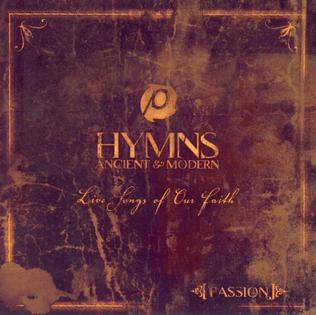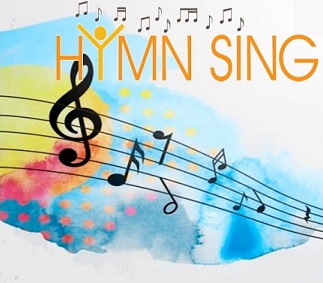During this study on Hymns of the Church, we begin with a review of the history of (Anglican) hymnody. Each subsequent week, we study and sing our way through several hymns drawn from the ancient church, the 1982 Hymnal, and contemporary Christian music. This study is for six weeks.
(Autumn 2017)
Hymns – A History of Hymns in the Church, pt.1
John Wesley instructs us that all hymn singing must be done spiritually with an eye towards singing the words written and not being carried away by the tune. And so, as we go through the hymns over the next several weeks, make sure that all of our singing is done to the glory of God and the edification of our hearts.
Hymns – A History of Hymns in the Church, pt.2
Therefore if you enjoy singing hymns in church, it all goes back to a 15th-century Czech reformer whose descendants’ hymns caused the conversion of two Anglican priests. Tonight, we will look at Hus and Wesley and other people who influenced the development of our hymnody.
Hymns – Handout on a History of Hymns in the Church
“When someone reads the words of a psalm as an act of worship, he or she takes over, in a sense, the psalm’s authorship. It may have been written by an ancient Levite, but at the moment of its recitation, its words become the worshiper’s own.”
James Kugel, “How to Read the Bible”
Hymns – The Gospel In Hymns, pt.1
For each hymn I have linked to the Hymnary.org discussion of the hymn which gives a brief overview of the author, notes of scriptural references, bulletin notes, and different tunes to which the hymn may be sung.
Hymns – The Gospel in Hymns, pt.2
In “All Creatures of Our God and King,” St. Francis of Assisi tells us that we fully come to know God only when we join our voices with all of creation – the sun, the moon, the wind, water, fire, and earth.
Hymns – Advent and Christmas, pt.1
Tonight we are singing “Come, thou Redeemer of the Earth” by Ambrose of Milan which is the first Christmas hymn written in the Western Church and maybe in all of Christendom.
Hymns – Advent and Christmas, pt.2
Traditionally, the church has emphasized Christmas, not so much as a baby in a manager, but as the celebration of God come-to-earth. Therefore, in Advent, our hymns emphasize both the Incarnation and the Parousia (Second-Coming).
Hymns – Camp Songs, pt.1
One of the songs we are singing this week is “This is the Day” by Leslie Norman Garrett, an evangelical New Zealander. The song is based upon Psalm 118:24, which proclaims the great day of the Passover during the Exodus. The tune is a Fijian folk tune discovered by Garrett in his work in that country.
Hymns – Camp Songs, pt.2
One song we are singing tonight is “They’ll Know We Are Christians By Our Love” written by Fr. Peter Scholtes, a Roman Catholic priest in south-side Chicago. He wrote the song 1966 for a youth choir to sing for at an ecumenical, interracial event. The song proclaims the root of our Christian unity that transcends all divisions.
Hymns – Ancient and Modern, pt.1
This week we are singing hymns ancient-and-modern. These are hymns that were written generations or centuries ago, but which have seen a resurgence in Contemporary Christian Music. The first hymn we are singing is “Be Thou My Vision” which was written in the 6th c. but not translated into English and available for popular singing until the 20th c.
Hymns – Ancient and Modern, pt.2
Another ancient to modern hymn is “Holy, Holy, Holy, Lord God Almighty” by Reginald Heber in the early 18th c. It has become one of the mainstays of Contemporary Christian Music from Hillsong to the Getty’s.
Hymns – Hymns of the Resurrection
The first hymn we are singing this week is “All Glory Laud and Honor” which is the traditional processional hymn sung for Palm Sunday. The hymn was written by Theodulf, Bishop of Orléans, in about 820, while he was imprisoned. The hymn was used by the medieval church to reenact Jesus’ triumphant entry into Jerusalem.
Hymns – Hymns of the Resurrection
The hymn “Jesus Christ is Risen Today” (1982 Hymnal 207) was composed in Latin in Bohemia in the 14th c. As we sing this hymn tonight pay special attention to the verb tenses. The hymn uses the past tense to speak of the Cross and Salvation but the present tense to speak of the Resurrection.
Hymn-Sing
Instead of a formal lesson this evening, I have invited Bradley Hardee, the choir director at Kingston Presbyterian in Conway, to lead us in a hymn-sing after dinner tonight.


